December 11 - 17, 2011: Issue 36
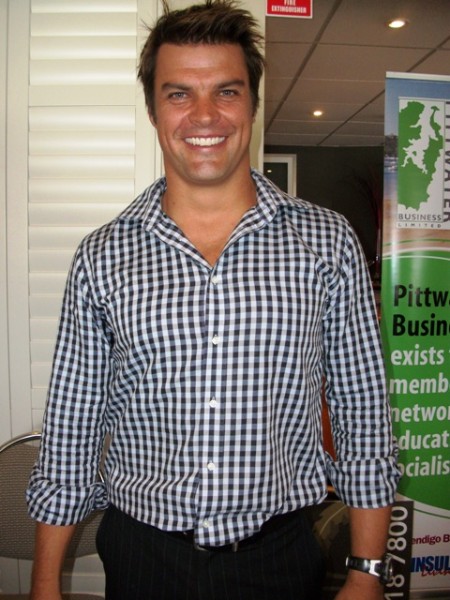
Above: Peter Wells. Below: Dr Yvonne Mc Master
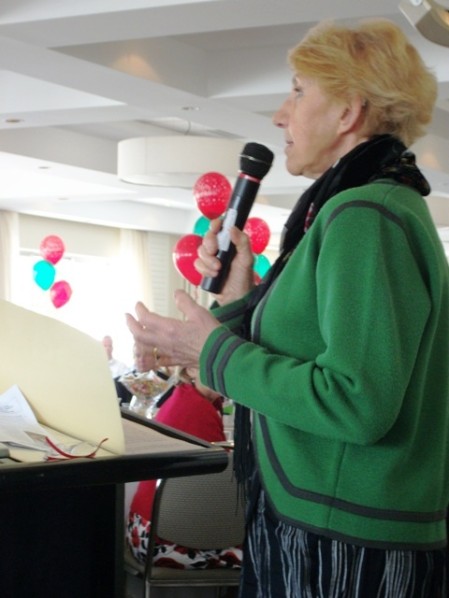
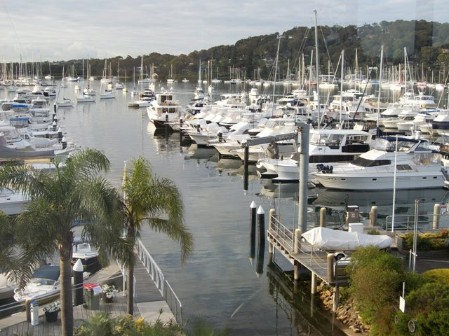
Above: Peaceful morning at RMYC, Newport. Below: Full house
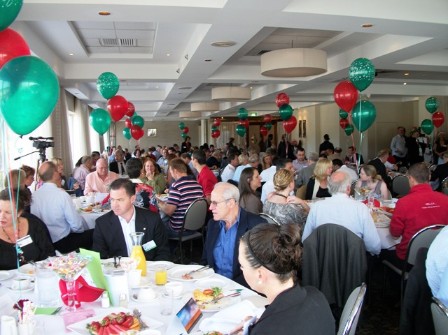
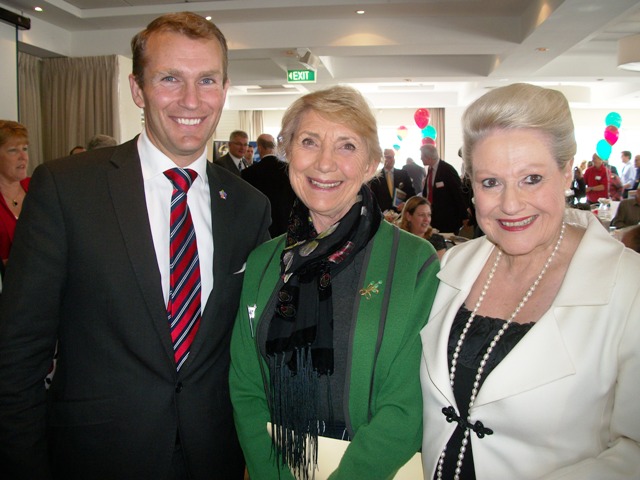
Above: Hon. Rob Stokes, MP for Pittwater, Dr McMaster and Hon. Bronwyn Bishop, Federal Member for Mackellar. Below: Mayor Harvey Rose with Andrew Blunden.
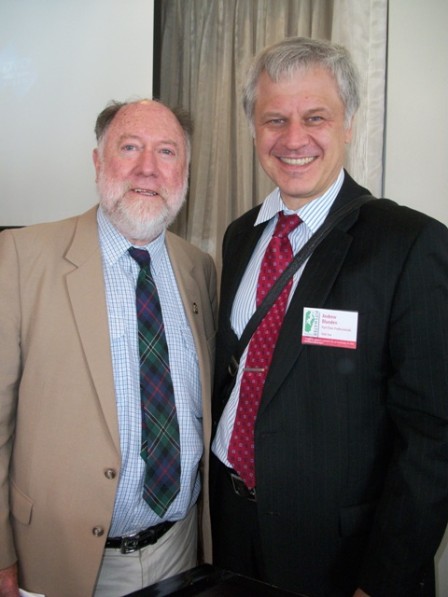
PBL and Rotary Pittwater Breakfast to raise funds for Palliative Care in Pittwater
On Wednesday morning 175 business and community leaders including 10 Rotarian's enjoyed a presentation by Narrabeen resident Peter Wells, a Mount Everest mountaineer. Besides climbing Everest and the 6th highest mountain in Tibet, Pete is a keen surfer, scuba diver and surf lifesaver. He is a Coolangatta Gold ironman and ocean paddling competitor. By camel he has visited nomads in the Sahara Desert; by boat, remote surfing spots in Indonesia; and by foot, the Himalayas, including more recently to Everest, the top of the world. In his spare time, he is a qualified town planner and holds two degrees in the areas of science, environmental health, urban design and planning. He is also a presenter on the Seven Network’s Sydney Weekender program.
At 8PM on the evening before the event PBL organisers received a call from Steve Bock who had just been stranded in Perth due to severe thunderstorms with all flights cancelled. He would not be able to speak at at the PBL/Pittwater Rotary Christmas fundraiser. One hour later his climbing mate Steve had agreed to step in and arrived at 6.15 in the morning to set up.
We all enjoyed his captivating presentation of the challenges in reaching the top. A new term, ‘To Summit’, applicable to all who strive to achieve wether in business or in life, was quickly adopted by those who attended after Peter’s great presentation. Peter’s articulation of the stresses involved in climbing Everest, and how you develop ‘tunnel vision’ and concentrate by remembering ‘what you’re doing is right in front of you’, encapsulated how a fifteen year dream and a year’s physical preparation, including a month on the mountain itself, simply to adjust the body to air quality, comes down to one night, and one chance; Summit Night.
The other invited guest speaker, Dr Yvonne McMaster, who Gail Carew, Pittwater Rotarian Project Leader for raising funds for Palliative care works closely with, delivered a truly informative, stirring and engaging message. Dr McMaster chose another phrase from Peter’s talk, illustrating how vital ‘crampons’, the steels attached to boots which allow mountain climbers to attach themselves to sheer cliffs of ice, can also be applicable to the patients and families Palliative care seeks to help.
From Dr McMaster's Address
The verb to palliate means to relieve. Palliative care seeks to relieve pain and other distressing physical symptoms and to support the patients and their families facing life – threatening illness. It aims to maximise quality of life and to minimise distress and suffering. It aims to help people to live fully until they die. I have looked after many people who told me at the end that the last six months of their lives were the very best. Yet many of us tend to switch off when we hear about palliative care - better to think about life than death. But I am here to tell you that life is a sexually transmitted terminal disease. Death will come to all of us and, if we think about it we all want it to be as comfortable and peaceful as possible.
I meet every week with a support group for patients with advanced cancer. They better placed than most to say how they would like to die. Last week I asked them that question. They told me that:
A good death is one where the person is prepared, free of pain and distress. It could be at home or in a hospice depending on the circumstances. The closest loved ones should be present and in the days, weeks and months leading up to the death it should have been possible for them to all to speak together about their life and death and hopes for the future. The patient and family must know that help is at hand if needed. All necessary equipment and medications must be available and, unless a trained person is present at all times, the carers must know how to use them. Death should not be too drawn out but should be peaceful in every way - physically, emotionally and spiritually.
The role of palliative care is beautifully explained in this poem by Bruce Dawe called White Water Rafting and Palliative care:
White - Water Rafting and Palliative Care for my late wife, Gloria
If I had understood (when down the river
you and I went swirling in that boat)
that there were those who knew the ways of water and how to use the oars to keep afloat
I might have been less deafened by the worry, less stunned by thoughts of what lay up ahead
(the rocks, the darkness threatening to capsize daily), if I had only realised instead
that help was all around me for the asking
I never asked, and therefore never knew that such additional comfort could have helped me
in turn to be more help in comforting you.
I'd have found it easier then to simply hold you instead of bobbing to and fro so much,
for it was you who seemed to be more tranquil and I whom death was reaching out to touch.
If only I had had sufficient knowledge
in that white-water rafting I'd have learned 2 that there were those around us (with life jackets) to whom I might have, in that turmoil, turned.
Instead, because I had not thought of rivers, or rocks, or, rapids, and gave way to fears
that seeking help might make a man less manly and liable to betray himself with tears,
I was less useful then, as twilight deepened, than I might well have been, had I but known: however wild the waves that roll around us no one needs to live (or die) alone
Bruce Dawe. 2007.
The poem encapsulates how palliative care can help to transform an experience of uncertainty, fear, terror into one of peace and calm.
I want to correct any misunderstanding that you may have that palliative care can only be useful at the very end. In fact recent research has shown what we always suspected, that if the patient and family have contact with palliative care early in the course of the illness not only is the journey much easier and better but the patient's life is actually extended.
You also need to know that palliative care is not just for cancer. It is to relieve suffering in all life limiting illnesses - even old age. The understandings about pain and symptom management are of use in every condition.
When palliative care funding was cut to northern Sydney by the previous government it was the people who had experienced palliative care for their loved ones in the past who rose up in their hundreds collecting signatures on a petition asking the government to restore the funding and to improve palliative care throughout NSW. 24,000 signatures in all.
Barry O'Farrell's government heard their cries and responded. The funding was restored and work is afoot to improve services throughout NSW. But we cannot rest on our laurels. Unless these matters are constantly raised other noisier claimants will attract the attention of governments and bureaucrats.
I am asking you for your help and support in this.
First I want you to know that whilst the palliative care service in this area is good it is still not good enough. We need more doctors, nurses and allied health to help man the oars and navigate the rapids. We urgently need nurses who can go out to people's homes at night if they are needed to help and support carers.
Second, we need help with funds now to be able to upgrade the palliative care cottage in the grounds of Mona Vale Hospital. The cottage will house clinics and equipment and there will be meeting rooms for cancer support groups.
Third we need a full palliative care unit in Mona Vale Hospital so that if people can't be looked after at home they don't have to goüof the area to be looked after. For this we have to advocate for more funding for the palliative care service.
Right now we need sturdy boats and life jackets as well as
many more experienced oarsmen.
The Rotary Club of Pittwater has pledged to support the Palliative Care Centre at Mona Vale Hospital and joined with Pittwater Business Limited to raise funds for this worthy cause. The breakfast was held at the Royal Motor Yacht Club, Newport. The event generated $5000 which will be presented to Rotary Pittwater for the support of our project. A truly wonderful result.
The Hon Bronwyn Bishop, MP, Federal Member for Mackellar, Mr Rob Stokes, MP, Member for Pittwater and Cr Harvey Rose, Mayor of Pittwater were in the audience.
Parts of this Article are derived from a PBL Press Release written by Maggie McPhillips Jacka and words by Hans Carlborg, President of the Rotary Club of Pittwater. Thanks also go to Larraine Hall, Past President of Pittwater Rotary, for all her support and help given to Gail Carew. If you would like to get involved in furthering this project please contact Gail at gail.aus@hotmail.com